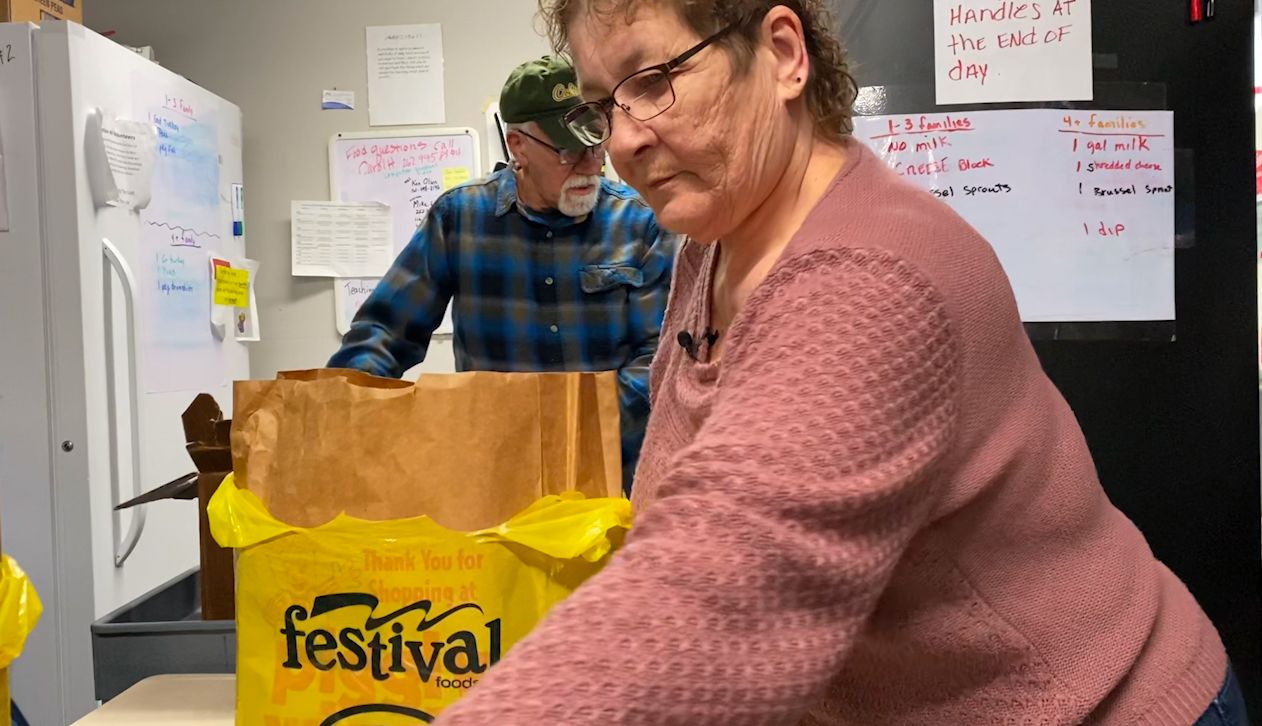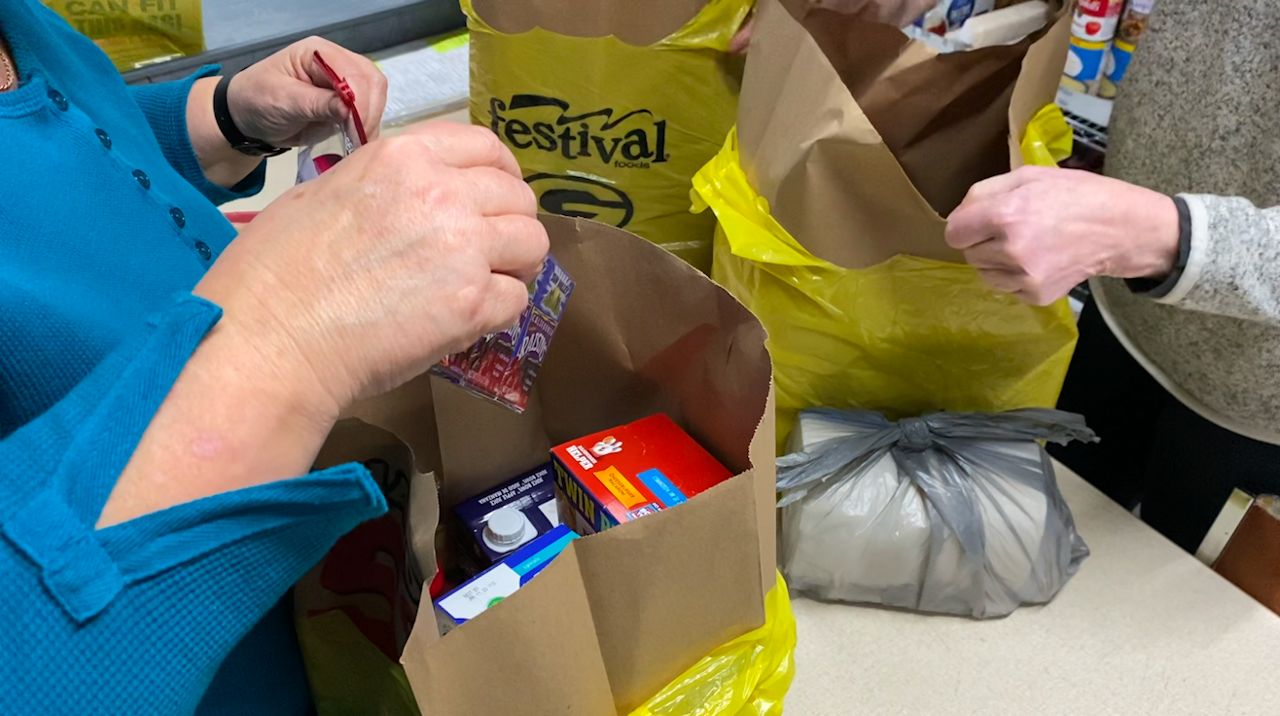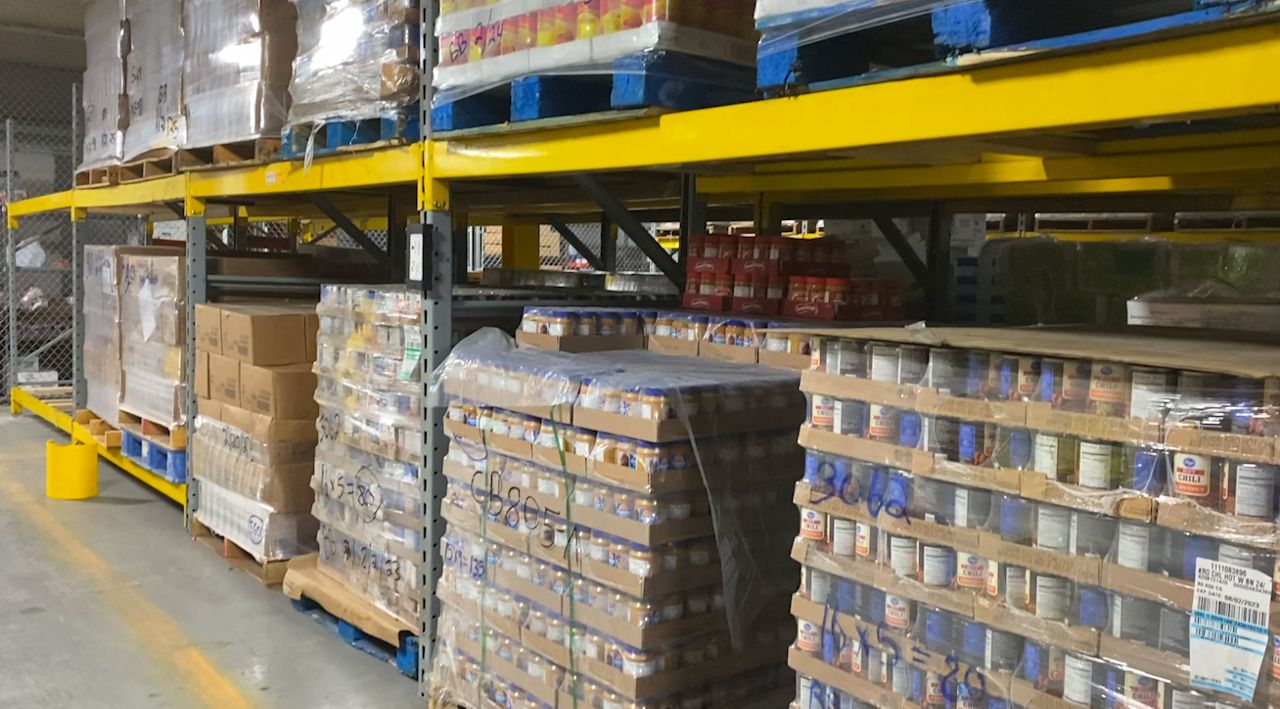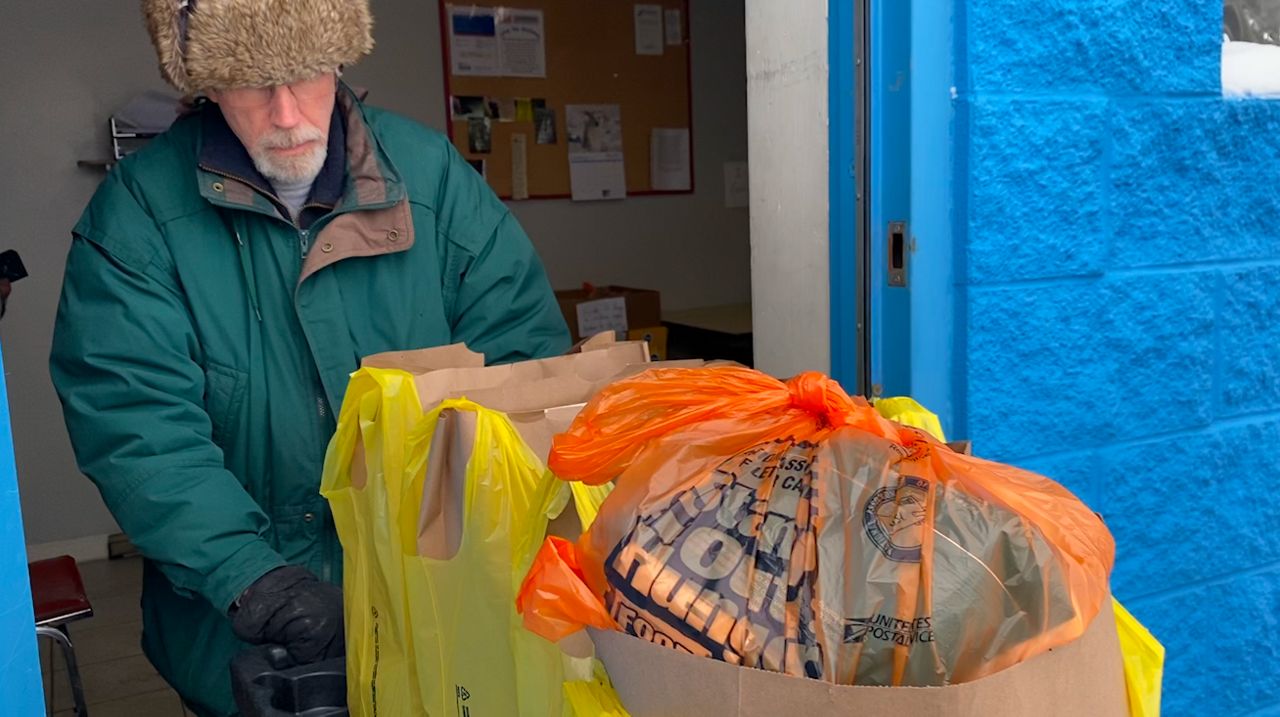MILWAUKEE — If you’ve been getting extra FoodShare benefits during the pandemic, they’ll be ending this month.
Starting March 1, 2023, members will only get their regular FoodShare benefits. The end of those benefits could put a strain on food pantries around the state.
Workers at Harvest Outreach in Racine said they’re worried they may not be able to keep up with the demand from families who need food once the extra pandemic FoodShare benefits end.
Whether they’re helping feed a family of two or a family of six, pantry manager Carol Harris said they’re expecting some difficult times ahead.

“We’re struggling right now to keep peanut butter on the shelf,” said Harris.
Harvest Outreach helps feed about twelve families a day. Once these families no longer have extra FoodShare benefits to use at the stores, they may become more reliant on food pantries.
“We always try to include meat in the clients’ orders,” she said. “We aren’t going to be able to do that. That’s going to affect us very much.”
Inflation has been one of the biggest factors contributing to pressure on food pantries across the state.

They rely on donations, but Harris said those donations have slowed down.
“I think because of the higher price, it’s making it harder for those people to donate more things,” said Harris. “I myself find it harder to give anything to the food pantry, much less buy my own food.”
In addition to donations, they get the majority of their food from Racine County Food Bank and a government agency called The Emergency Food Assistance Program, or TEFAP.
TEFAP is a federal food assistance program that provides vital resources to food banks, food pantries, soup kitchens, and other community-based partners who feed people in need.
Dan Taivalkoski is executive director of the Racine County Food Bank. In addition to supplying Harvest Outreach, they also supply other pantries in the county with food once a month.

Taivalkoski said these extra FoodShare benefits for families actually allowed them to have more food available.
“We actually saw our service numbers go down at the pantry level,” he said. “Clients were getting what they needed from the grocery store. That will unfortunately not be the case once benefits are curtailed again.”
He said the food bank and pantries will be reverting to what they were before the pandemic, an emergency food supply.
“It’s going to be a difficult transition,” said Taivalkoski. “We’re going to see a lot of demand out there. We’re trying to prepare for that and provide clients with what they need while we scale back to emergency only. It’s going to be a challenge.”
Harris said they get donations from 11 churches in the area. She said it’s already been harder for their members to donate to the pantry.

“These elderly people whose incomes are very small, they have to decide, food or their medicines,” said Harris. “I get it. I really understand that, and it worries me.”
She said the only thing they can do is continue to prepare and make sure they provide what they can to families in need.



